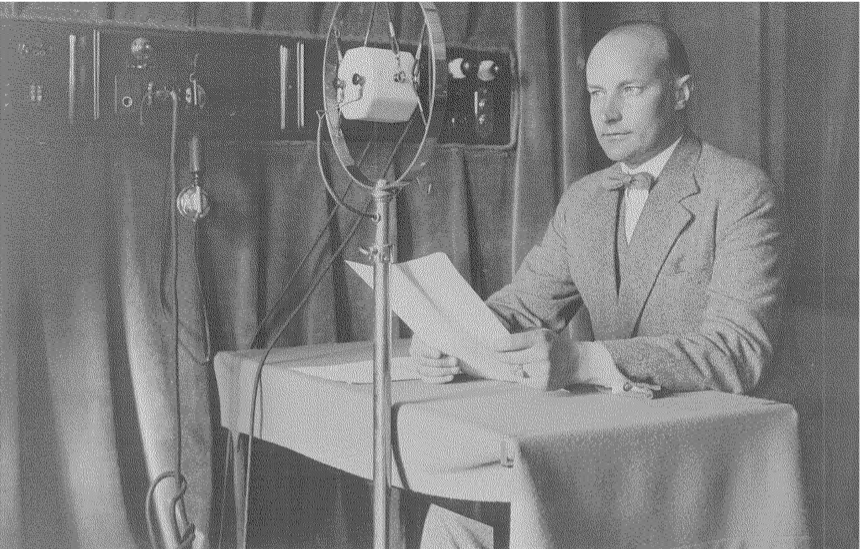Voice studies
Lecture: Different approaches to the voice I
When we use our voice, we produce sound that reveals meaning in a certain pattern. It does not only reveal linguistic meaning. It also consists of a performative aspect (tempo, timbre, pitch, breath), affecting how we perceive the linguistic message. In other words: The way something is said is as important as what is said. The voice performance consists of a temporality that made it ephemeral and hard to capture before the recording technology was developed. And since it is performative, it is contextually bounded. According to the German scholars Doris Kolesch and Sybille Krämer the vocal performance is an event, an ‘Ereigniss’ (Koelsh & Krämer:2006). Their approach to the field of voice studies inscribes itself into a performative turn, which is closely related to the new approach to the field of voice studies from a DH perspective.
 |
One of the first continuity announcers in Denmark, Carl Frederik Schiønning, in 1927. Consider the distance to the microphone, which indicates a different way of using the voice compared to a modern radio studio. Photo: Unknown.
According to philosopher Ariana Cavarero each voice is unique (Cavarero:2005), which may be why the voice is often related to the idea of soul. As Aristotle wrote in ‘On the Soul’:
’Voice is a kind of sound characteristic of what has soul in it; nothing that is without soul utters voice, it being only by a metaphor that we speak of the voice of the flute or the lyre or generally of what (being without soul) possesses the power of producing a succession of notes which differ in length and pitch and timbre. The metaphor is based on the fact that all these differences are found also in the voice (…) Not every sound, as we said, made by an animal is voice (even with the tongue we may merely make a sound which is not the voice, or without the tongue as in coughing); what produces the impact must have soul in it and must be accompanied by an act of imagination, for the voice is a sound with a meaning, and is not the result of any impact of the breath as in coughing’ Aristotle ‘On The Soul’, Book II 420b 5-34 (Jonathan Barnes ed.)
Roland Barthes goes even further in his famous essay ‘Le grain de la Voix’ (Barthes:1977), where he points at the aesthetic quality that some (singing) voices have and others don’t. It is not just that the quality is hard to capture. Some singers just don’t have it. Here we could quote a famous jazz standard: ‘It don’t mean a thing if you ain’t got that swing’.

